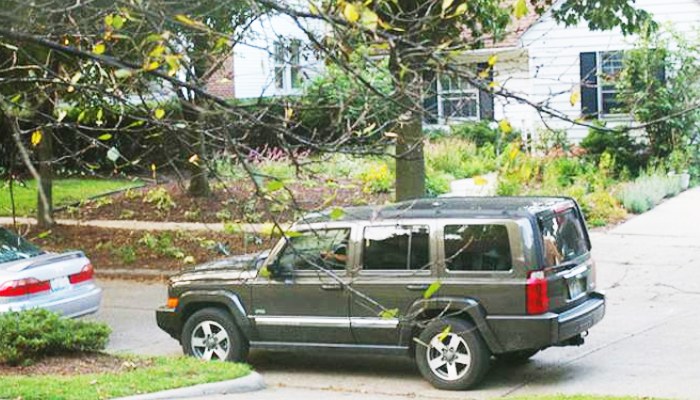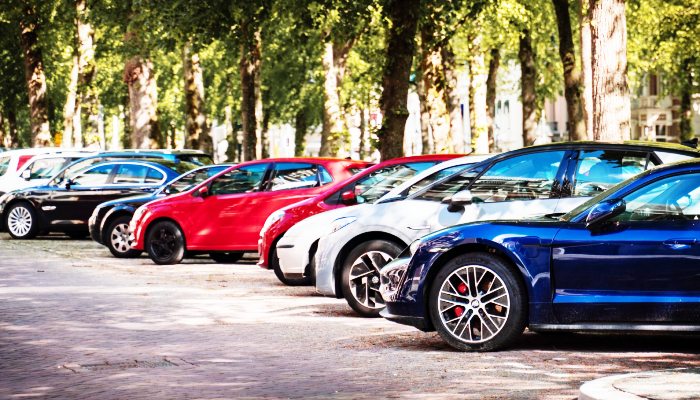
What to Do If Someone Blocks Your Driveway: Steps to Take in Queensland
Encountering a blocked driveway can be a frustrating experience, especially when it disrupts your daily routine. In Queensland, driveway parking rules are in place to ensure that residential access points remain clear for property owners and emergency situations. However, not everyone may be aware of these regulations, leading to situations where vehicles may park improperly and obstruct your access.
In this guide, we’ll walk you through practical steps to take if someone blocks preventing access to your driveway, from documenting the incident to contacting local authorities. By following these guidelines, you can address the issue effectively and gain a better understanding of the rules around driveway parking in Queensland, helping you protect your property access.

Understanding Queensland’s Parking Regulations
In Queensland, specific rules govern driveway parking and on-street parking to maintain safe and accessible spaces for property owners and the community. According to local laws, illegally parked vehicles, particularly those blocking driveways or access to local streets, can create safety risks for residents, delivery services, and emergency vehicles. Parking on the nature strip or blocking pathways leading into a property even partially is also considered illegal and may warrant action if access is restricted.
Familiarizing yourself with these regulations helps you recognize when a violation occurs, enabling you to report illegal parking to the Queensland Police Service or local council. Make sure to document the vehicle’s exact location, license plate, and other identifying details, as this can assist authorities when handling complaints. Understanding what qualifies as illegal parking near driveways and other parked vehicles ensures that any response you take aligns with Queensland’s laws, empowering you to address the issue effectively and confidently.
Document the Situation
When you discover your driveway blocked by a parked vehicle obstructing vehicle access, thorough documentation is essential to create a clear record of the incident in case further assistance is needed. Start by taking high-quality photos of the vehicle exact location from multiple angles, ensuring both the blocked driveway and the vehicle’s position are clearly visible. Include close-up shots of the license plate, along with broader images that capture the driveway and surroundings.
Next, jot down essential details, such as the date, time, and how long the vehicle has been parked illegally, if possible. Make a note of any distinguishing characteristics, such as the color, make, and model, which can be useful in identifying the vehicle if it becomes an ongoing issue. This documentation is particularly helpful if authorities need to tow vehicles blocking access.
These records not only strengthen your case should you need to report the issue to authorities, but they also provide credible evidence if you need to resolve a dispute with the vehicle owner. Taking these steps early on ensures a complete picture of the situation, allowing for a more streamlined resolution. Proper documentation will also assist authorities in addressing any violations effectively, giving you peace of mind while navigating the steps to clear your driveway.

Contact the Vehicle Owner if Possible
If your driveway is blocked by parked vehicles, the quickest resolution often involves reaching out to the vehicle owner directly. Start by checking with your neighbors or nearby residents to see if they recognize the vehicle and can help contact its owner. This approach can often resolve the issue amicably, keeping access to local streets clear without involving authorities or formal procedures.
In areas with shared parking spaces or a community group, consider posting a respectful message with the vehicle’s details to alert the owner. This approach not only helps to clear heavy vehicles from your driveway promptly but also fosters good relations within the community by showing that you’re willing to address the issue diplomatically. Additionally, if the vehicle is obstructing a bicycle path, gently mention the importance of keeping it clear for safety reasons.
If the owner can be reached, kindly explain the inconvenience caused and request that they move their vehicle. In many cases, drivers may be unaware that their cars are obstructing a driveway or access, and a simple reminder can resolve the situation quickly. Taking these initial steps can save time and help prevent future issues, keeping your driveway clear while maintaining neighborly goodwill.
Know When to Call Local Authorities
If direct efforts to contact the vehicle owner prove unsuccessful or if the blockage persists, it may be time to involve local authorities. In Queensland, your first point of contact should typically be the local council or police, as they handle driveway parking violations and can issue fines or arrange for the parked vehicle’s removal if necessary, ensuring access to local streets remains clear.
Before contacting authorities, ensure you have documented the situation thoroughly, including photos and any relevant details you noted earlier, as these will support your case. When calling, provide specific information, such as the exact location of the blocked driveway, vehicle description, and how long it has been obstructing access. Mention if the blocked driveway is hindering your ability to access local streets as this can strengthen the urgency of your case.
In most cases, authorities will issue a warning to the vehicle owner or a fine, but in severe cases—such as when the blocked driveway poses safety concerns or obstructs emergency access—they may take immediate action. By involving local authorities, you ensure the situation is handled in line with Queensland’s parking regulations, helping to clear your driveway legally and efficiently.

Understand the Possible Consequences for the Offender
In Queensland, blocking a driveway is considered a parking violation and can result in penalties for the offending driver. Once authorities are involved, the driver may be issued a fine or even have their vehicle towed if the obstruction is severe or if it poses a safety risk. The amount of the fine may vary depending on the location and the severity of the violation, but the consequences are meant to discourage illegal driveway parking and ensure motorists that property access remains unobstructed.
In addition to fines, repeat offenders or those causing significant disruptions may face increased scrutiny from local authorities, potentially resulting in more stringent actions if they continue to park illegally. Understanding these potential consequences can be useful if you need to escalate the matter, as it reassures you that the law is on your side. Knowing that fines and even towing are options provides leverage when dealing with ongoing issues and emphasizes the importance of respecting driveway access in Queensland.
Preventing Future Blockages
To minimize the chances of your driveway being blocked in the future, consider implementing preventive measures. One effective step is to install clear signage near your driveway, stating that parking in front of it is prohibited. Signs with polite language, such as “Please Keep Driveway Clear” or “No Parking in Front of Driveway,” can serve as gentle reminders, discouraging drivers from obstructing access to private property.
If blocked driveways are a recurring problem in your area, you might also consider contacting your local council to discuss potential solutions, such as increased signage or regular patrols in problem areas. Additionally, keeping your neighbors informed and fostering good relationships within your community can make a difference. When everyone is mindful of each other’s access needs, the likelihood of repeat blockages decreases.
Taking these proactive steps not only protects your driveway access but also promotes a cooperative neighborhood atmosphere. By using road rules and setting clear expectations, you encourage responsible driveway parking and help prevent future disruptions.

Conclusion
Dealing with a blocked driveway can be an inconvenience, but by following these steps, you can address the situation effectively while protecting your rights as a property owner. Understanding Queensland’s driveway parking regulations, documenting incidents, attempting to contact the vehicle owner, and involving authorities when necessary are all essential actions for managing the issue. Additionally, implementing preventive measures can help reduce the likelihood of future blockages, ensuring that your driveway remains clear and accessible.
Whether it’s a one-time incident or a recurring problem, staying informed and prepared allows you to handle traffic flow and blocked driveways with confidence and minimal stress. By fostering good communication and using available resources, you can maintain access to your property and promote respectful parking practices within your community.
This article is of a general nature and is intended for information only. It should not be relied upon as legal advice. If you require further information, advice or assistance for your specific circumstance, please contact us at Bouchier Khan Lawyers.
